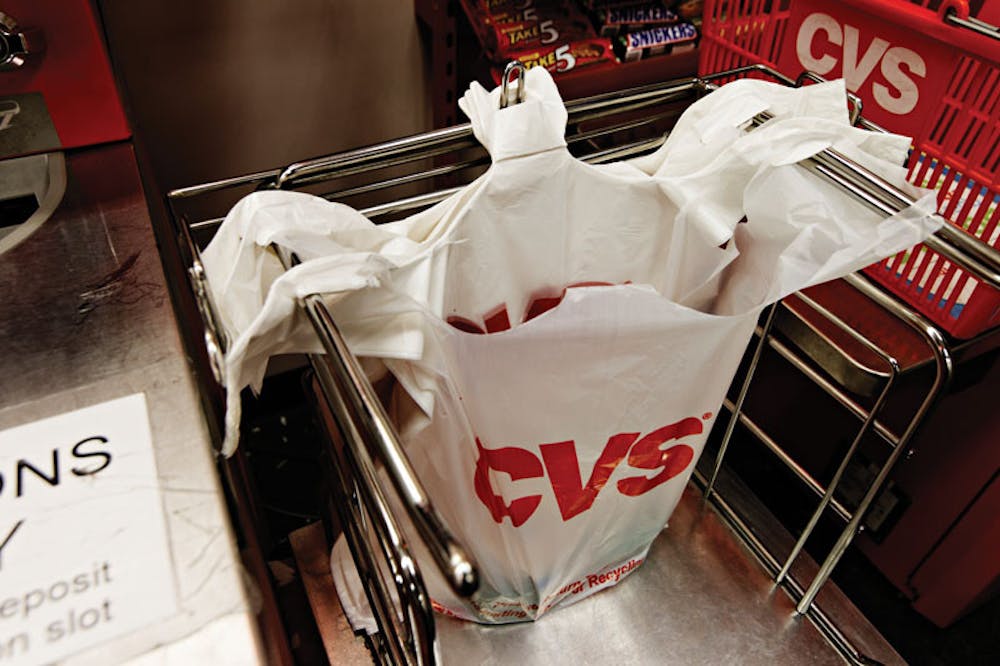A bill to ban grocery store use of plastic bags statewide was introduced into the General Assembly earlier this month by Rep. Maria Cimini, D-Providence.
Plastic bags have already been banned in all the counties of Hawaii and in cities like Los Angeles, San Francisco, Seattle and nearby Barrington, but if this legislation is passed, Rhode Island would become the first state to implement a statewide ban.
Rhode Islanders use approximately 192 million plastic bags every year, according to a 2006 report by the Brown Policy Review.
Cimini said the ban is necessary because the bags “pollute our waterways, and that’s not attractive — it’s incredibly unpleasant.”
Rhode Island is “a state that prides (itself) on (its) natural resources, on (its) oceans, bays and many lakes,” she said. “Polluted waterways not only pose harm to aquatic life but also could damper one’s enjoyment of being outdoors.”
Environmental groups have long cited plastic bags as a major source of pollution. “Single-use plastic bags are consistently one of the top items found in Rhode Island coastal cleanups, which means they are one of the most common types of trash polluting Narragansett Bay,” said Channing Jones, a spokesman for Environmental Rhode Island, an organization that supports the ban.
Plastic bags are non-biodegradable. They are only vulnerable to photodegradation — disintegration from exposure to ultraviolet rays. Only a small fraction of the bags used annually are recycled, and the remaining bags can end up polluting forests and streams and harming wildlife, according to a 2003 National Geographic article. Advocates of plastic bags defend the product by citing reports that plastic bags account for only 2 percent of litter nationwide.
Opponents of the ban argue that paper and reusable bags require more energy to produce and dispose of than plastic ones do and that reusable bags can be dangerous for consumers’ health, because they can harbor bacteria upon continued use.
Representatives of the business community are also concerned the ban could cause retailers to experience a drop in sales and that employees in the bag-making industry could lose their jobs. “From an economic standpoint, more than 30,000 Americans have jobs creating these bags in 349 plants across the country, and this is an economic development issue,” said Paul DeRoche, executive director of the Rhode Island Retail Federation. “You just can’t shut the door. It’s all about jobs.”
A study released in 2012 by the National Center for Policy Analysis on the effects of the Los Angeles bag ban concluded that affected retailers experienced a drop in sales and were forced to reduce their workforce compared to retailers outside the ban’s jurisdiction. “It’s not good for economic development, and it’s just not good for the whole retail industry,” DeRoche said.
Jeff Baum ’15, a member of the student environmental group emPower, said he does not think these economic concerns should deter the legislation. “It all depends on … how you place the economic incentives,” he said. “The state wants to shift economic incentives away from plastic, so eventually that will lead to recycling credits — probably more jobs in recycling, if more recyclable products are starting to be produced.”
If enacted, the legislation could set a precedent for other states nationwide, said Rep. Edith Ajello, D-Providence, a cosponsor of the bill. “One state doing it makes it easier for the next state. It’s sometimes hard to be the first state to do it,” she said.
The bill would take effect January 2014 for large retailers and January 2015 for small stores. Cimini said it is rare for a bill to pass the first year it is introduced, but at the very least, she said she hopes “we can have a real conversation about the lengths we are willing to go as a community to protect our natural resources.”

ADVERTISEMENT




